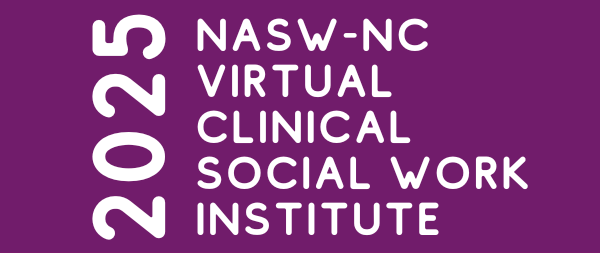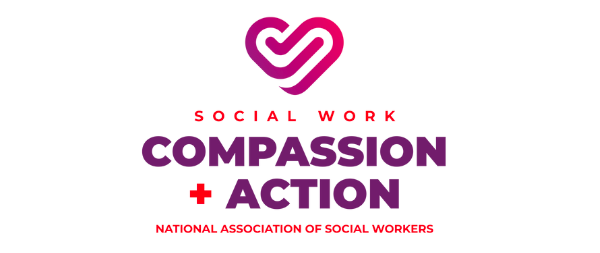
May 12, 2025 - Session Agenda
8:00am - 10:30am ET - Keynote Presentation
8:00 am EDT
Welcome Remarks & KN1: Complex Ethical Challenges in Clinical Social Work: How to Protect Clients and Ourselves
Overview
This session will give attendees an in-depth examination of compelling ethical challenges in clinical social work. Moving beyond introductory ethics concepts, We will explore difficult ethics cases involving conflicting professional duties and discuss practical steps that social workers can take to manage ethical issues skillfully. Key topics will include boundary issues, dual relationships, conflicts of interest, confidentiality, privileged communication, informed consent, clients rights, termination of services, and clinicians use of technology.
Speaker(s)
Frederic Reamer, Ph.D.
11:00am - 12:30pm ET - Concurrent Sessions
11:00 am EDT
M1: Best Practices for the Treatment of Dissociative Identity Disorder (DID)
Overview
Social workers see many clients with early childhood trauma and severe attachment wounds. Many meet criteria for dissociative identity disorder (DID), but will not be so diagnosed due to the widespread belief that the condition is rare. Unless accurately diagnosed, these clients will experience poor outcomes. There are many therapeutic modalities designed to treat trauma, but none are specifically geared toward the complexities involved with DID. Therapists who are skilled in working with clients with complex trauma can effectively diagnose and treat these clients, and this workshop provides a set of best practices to do so.
Speaker(s)
Gregory L. Nooney, MSW, LISW, LCSW
11:00 am EDT
M2: Social Isolation in Aging Adults - A Wicked Problem
Overview
Speaker(s)
Nancy Lazar, DSW, LCSW
11:00 am EDT
M3: Supporting Queer Clients in Reclaiming Power During a Time of Crisis
Overview
Speaker(s)
Anna Susol, LCSW
Lunch Break with Exhibitors - 12:30pm -1:30pm ET
12:30 pm EDT
2025 CSWI Live Virtual Exhibit Hall - Lunch with Exhibitors
Overview
Please join us to speak LIVE with the sponsors and exhibitors of the 2025 NASW-NC Virtual CSWI Spring Conference during lunch.
1:30pm - 3:00pm ET - Concurrent Sessions
1:30 pm EDT
M4: Blending Harm Reduction and Medication-Assisted Treatment: A Social Worker's Guide to Supporting Recovery
Overview
Speaker(s)
Adriana Londono, LCSW, LCAS, CSI,
1:30 pm EDT
M5: The Effects of Childhood Trauma on Adults: Building Resiliency to Restore
Overview
Speaker(s)
Toscha Wilkins, LCSWA,
1:30 pm EDT
M6: Unpacking Anxiety: A Clinician's Guide to Understanding, Managing, and Supporting Clients
Overview
Anxiety is one of the most commonly presented challenges in clinical settings, yet its roots are often misunderstood by clients and clinicians alike. This session delves into the distinctions between stress and anxiety, helping clinicians accurately identify and address these experiences in their clients. We'll also explore the role of clinicians' own anxiety, including how it manifests and influences the therapeutic dynamic. Attendees will gain tools to help clients navigate their anxiety through evidence-based interventions, while also learning self-management techniques to prevent the clinician's anxiety from spilling into their practice. This presentation equips social workers with strategies to foster resilience and deeper client connections.
Speaker(s)
Leah Marone, LCSW,
3:30pm - 5:00pm ET - Concurrent Sessions
3:30 pm EDT
M7: Navigating Family Roles in Addiction
Overview
Speaker(s)
Megan Best, LCAS, LCSW,
3:30 pm EDT
M8: Integrating Social Justice into Clinical Practice
Overview
Speaker(s)
Constance Perkins, DSW, LCSW, LISW-CP,
3:30 pm EDT
M9: Cultivating Collective Healing: The Art of Group Facilitation
Overview
Speaker(s)
Shira Sameroff, LCSW,
| Access Date | Quiz Result | Score | Actions |
|---|
Hello!
Need Technical Support?
Please login with the email you used to register and the password: Clinical2025
Need further support, please read our visit our FAQs page.
Conference Overall Evaluation/CE Transcript Access
Thank you for attending the 2025 NASW-NC Virtual Clinical Social Work Institute. Click the button below to complete the final conference overall evaluation and print your CE transcript. Recorded Sessions will be posted for viewing on Monday, May 19th and available until June 20, 2025. After June 20, 2025 access to the recorded sessions AND certificates will no longer be available.

